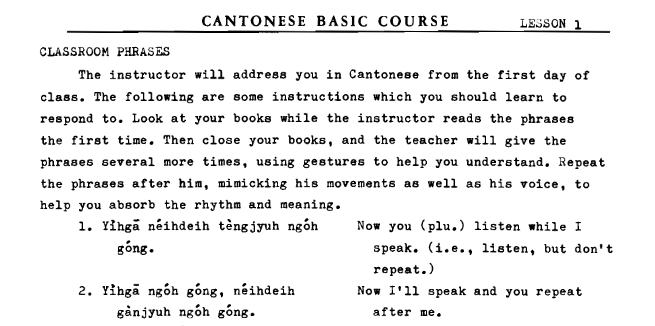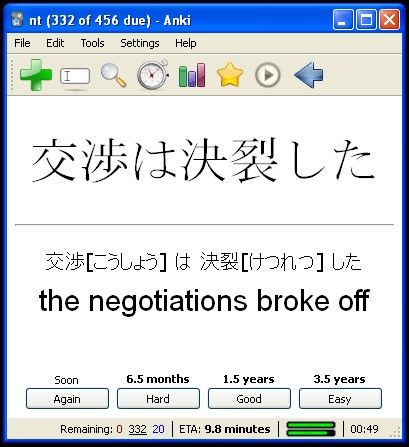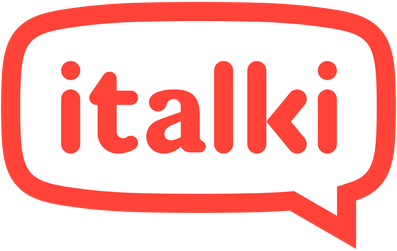How to Learn Any Language in 1 Year (In less than 30 minutes a day)
It is possible to learn a language to basic fluency in under a year, in a short amount of time each day [1].
If you're reading this page, you have access to a lot of useful resources. The internet makes access to learning materials and native audio easy. Examples of other people picking up languages in very short time frames are all over [2].
Children learn languages somewhat at random as they are exposed to it over many years of development. You are an adult and can take a structured--and more efficient--learning approach
The hardest part about language learning is putting in the work, everyday. If you turn your language study into a habit, you'll study everyday even if you are tired and lack motivation. Check out James Clear's Website if you want to be better at controlling your habits.
The Self-Taught Language Learning Plan
Everyday, set aside 15 minutes of dedicated study time. Use that time to focus on one of the following:
- A Beginner's Course: FSI
- Study of Basic Sentences (Sentence Mining): Glossika and Anki
- Talk with a Language Partner: italki
Passively listen to as much native audio as you can throughout the day.
That's it!
Beginner Language Learning Resources
What we need from a beginner language course:
- Pronuncation Practice
- Basic grammar structure
- A few basic vocabulary words

FSI
The US Foreign Service Institute has excellent language courses, all available for free. Study one of their beginner courses until you're bootstrapped enough to start understanding Glossika sentences.
Pimsleur is another introductory course, though it can be expensive (check your library!).
What is Sentence Mining?
In the context of learning languages, sentence mining is the act of collecting example sentences for study. Write them down or put them into a spaced repetition system like Anki.
Sentences are the best way to learn a language. Studying single vocabulary words doesn't teach you when to properly use that word, or how grammar works, or how to pronounce the word when surrounded by other sounds. Studying whole conversations might give you too much context, allowing for guessing of words you don't know. Sentences have got the size of information juuuust right. A sentence conveys a whole idea that's small enough to keep in your head, but still teaches you vocabulary, grammar, and how pronunciation changes occur near other words.
Any native audio or text source is fair game for sentence mining. Collecting sentences from a show or a book you like is a much more exciting way to learn than collecting sentences from a textbook.
I primarily used sentence mining to study for and pass the highest level Japanese Proficiency test (JLPT 1).
Sentence Mining Resources
Where do we get those sentences?

GlossikaUpdate 2018 - Glossika has since changed their format to an online flashcard based system. It's still a great resource for sentences
A Glossika package provides 3000 sentences with text and native audio. The sentences are chosen to cover the most useful grammar structures, enabling the student to pick up grammar without learning arcane rules. The audio is provided in different formats for learning listening, speaking, writing, and repeated exposure. Glossika costs money, but the consider how much time it will save you. Getting 3000 sentences with native audio takes a lot of time. Additionally, Glossika's sentences are chosen to make for more efficient learning. I'd estimate random sentence mining would take something closer to 5000 or 6000 sentences to reach similar levels of fluency. (I'm not affiliated with Glossika)

AnkiWhen Glossika sentences start to get too easy, it's time to do your own sentence mining. Find sentences you want to study from native sources (books, tv, websites targeted to native speakers) and create your own flashcards. Anki lets you make thousands of flashcards and study them efficiently using spaced repetition. An invaluable resource for language learners. Best of all, anki is free! Anki can also help in learning new alphabets or for practicing pronunciation.
Anki users also provide flashcard decks for free. Some popular decks are Japanese Core 2000 and Core 6000.

italki
Speaking with a native is the fastest way to increase your confidence and fluency. It's incredibly important to start speaking as soon as you can form coherent sentences, and get immediate feedback on pronunciation.
italki is a great website for finding a language partner. Costs money, but completely worth it if you can't find a local native speaker.
For your passive audio listening, find whatever native audio you can get your hands on. Preferably it's material you're interested in. Whenever you can, play audio of your target language. Passive listening gets you comfortable with the sounds and cadence of the language. Even when you aren't paying attention you'll start picking up common words and phrases.
Why only 30 minutes a day?

For many people, learning a language isn't their number 1 priority. If it is, go ahead and dedicate 4-8 hours daily; you will progress faster. For everyone else, the most important aspect is consistently studying everyday. By choosing a small amount of time like 15 or even 5 minutes a day, you are more likely to follow through. The best study plan is the one you stick to.
Limiting your study time has another benefit: you'll be more focused. How much faster do you work when right up against a deadline? A daily time-limit sets an artificial deadline, ensuring more focused study.
Typical Language Study day
- Listen to one Glossika GSR file during commute
- Work through half of an FSI lesson
- Listen to some native audio while cooking and eating dinner
Realistically, one might end up doing only one or two of these each day. This is totally fine! Just make sure some dedicated study is being done everyday.
Self-Test
I started learning Cantonese on January 19th, 2016. Prior to that my only exposure to the language was subtitled movies. I plan on visiting Hong Kong in September (about 9 months from this post).
My goals:
- Use the above Methods to learn Cantonese
- No more than 30 minutes of active study per day (Aiming for 15-30min per day)
- Have fluent, everyday conversations with native Cantonese speakers
- Be able to get around Hong Kong without any English
I am not aiming to read Chinese Characters or speak about specialized topics. I won't count passive listening/watching to my daily study time.
Check back with me in September to see how I've done!
[1]: Here I define fluency as the ability to hold everyday conversations with native speakers--with minimal hesitation on your part and minimal frustration given to your conversation partner. Ability to read is possible in a year if the language doesn't have a huge logography (e.g. Chinese).
[2]: Examples of great language learners




Member discussion